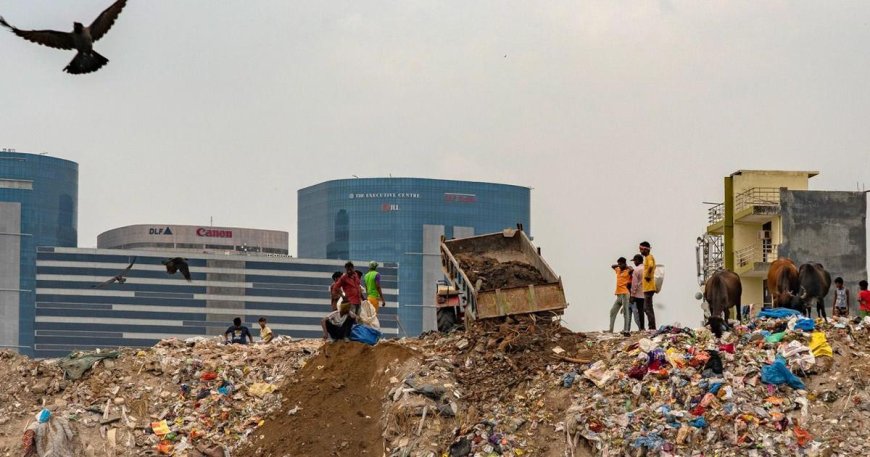Expats Lead Gurugram Cleanup Amid Civic Neglect
Expats in Gurugram take charge of cleanup drives amid civic neglect, raising awareness on waste, hygiene, and sustainability for a cleaner city.

Introduction
Gurugram, known as India’s “Millennium City,” has witnessed rapid urban growth, driven by its role as a corporate hub with global companies, high-rise apartments, and a booming population. However, behind its glittering skyline lies a concerning reality: mounting civic neglect. Poor waste management, lack of efficient sanitation systems, and inadequate municipal response have left many neighborhoods struggling. In this environment, a surprising yet inspiring movement has emerged—expats living in Gurugram have taken the lead in organizing large-scale cleanup drives, setting an example for both residents and local authorities.
History and Context
The issue of civic neglect in Gurugram is not new. Over the past decade, the city’s rapid growth has far outpaced its infrastructure development. Garbage accumulation, open drains, and uncollected waste have plagued residents, raising concerns about health and livability. While civic bodies like MCG (Municipal Corporation of Gurugram) have attempted periodic interventions, consistency and accountability remain missing. In response, expats—many of whom relocated to Gurugram for professional opportunities—felt compelled to take matters into their own hands, organizing community-led initiatives to restore cleanliness and dignity to their adopted city.
Why Expats Led the Cleanup
Visible Neglect: Daily exposure to unmanaged garbage and polluted streets pushed expats to act when authorities lagged.
Cultural Responsibility: Coming from countries where civic hygiene is stringently maintained, many expats sought to bring the same discipline to their neighborhoods.
Community Inspiration: By leading from the front, expats hoped to motivate locals and push authorities toward accountability.
Health and Safety: Concerns about diseases, foul air, and environmental impact created urgency for direct action.
Key Points & Future Development Programs
-
Awareness Campaigns: Expats not only cleaned but also raised awareness on waste segregation and recycling.
-
Collaboration with NGOs: Partnerships with environmental NGOs helped strengthen logistics and volunteer training.
-
Pressure on Authorities: Consistent efforts created pressure on local governments to step up infrastructure development.
-
Future Plans: Expats envision long-term projects such as dedicated recycling hubs, rainwater harvesting systems, and community composting to make Gurugram more sustainable.
Importance and Significance
This movement symbolizes how civic responsibility extends beyond nationality. It highlights:
-
The power of grassroots action in driving change.
-
The need for global cooperation in urban issues.
-
The possibility of creating eco-conscious neighborhoods through collective effort.
Advantages and Disadvantages
Advantages:
-
Immediate improvement in hygiene and aesthetics.
-
Increased civic awareness among residents.
-
Motivation for authorities to take corrective measures.
Disadvantages:
-
Reliance on citizens, especially outsiders, exposes municipal inefficiency.
-
Cleanup drives need consistent participation to remain effective.
-
Without structural reforms, these efforts risk being temporary fixes.
Positive and Negative Outcomes
Positive: Strengthened community spirit, cleaner surroundings, and increased global goodwill for Gurugram.
Negative: Civic neglect highlighted on a global stage, potentially affecting the city’s image as an international corporate hub.
Final Thoughts and Conclusion
The expats’ leadership in Gurugram’s cleanup drives is both inspiring and a wake-up call. It shows that when authorities fail, citizens—regardless of nationality—can step in to safeguard their environment. However, long-term transformation requires systemic changes, stricter enforcement of waste management rules, and stronger accountability from municipal bodies. While expats have initiated the spark, it is now crucial for residents and governing institutions to ensure this momentum translates into a cleaner, healthier, and sustainable Gurugram.
This movement is not just about sweeping streets—it is about sweeping away apathy, neglect, and inefficiency to build a city worthy of its global reputation.

 Ellofacts
Ellofacts 





